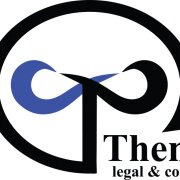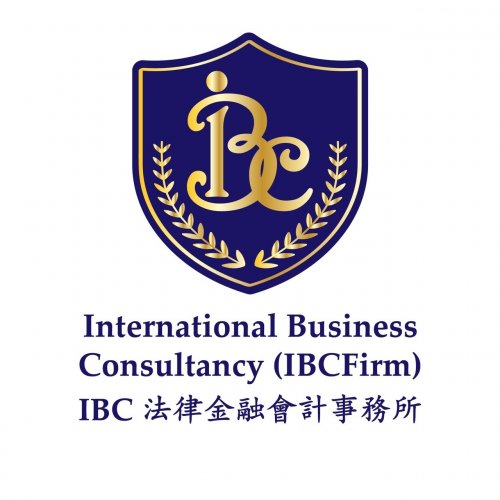ทนายความ ตลาดตราสารทุน ที่ดีที่สุดใน ประเทศไทย
แบ่งปันความต้องการของคุณกับเรา รับการติดต่อจากสำนักงานกฎหมาย
ฟรี ใช้เวลา 2 นาที
หรือปรับแต่งการค้นหาของคุณโดยเลือกเมือง:
รายชื่อทนายความที่ดีที่สุดใน ประเทศไทย
คู่มือกฎหมายเขียนโดย SIAM LEGAL INTERNATIONAL:
- Defamation Laws in Thailand: Criminal Charges and Civil Suits
- The State of Thailand’s Long-Term Resident (LTR) Visa Program in 2025
- The Penalties Of Not Filing Your Income Tax Return As A Foreigner In Thailand
1. เกี่ยวกับกฎหมายตลาดตราสารทุนในประเทศไทย
กฎหมายตลาดตราสารทุนไทยควบคุมการออกและการซื้อขายหลักทรัพย์ เพื่อคุ้มครองผู้ลงทุนจากความเสี่ยงด้านข้อมูลไม่ครบถ้วนและการฉ้อโกง
บทบาทหลักในการบังคับดูแลเป็นของ สำนักงานคณะกรรมการกำกับหลักทรัพย์และตลาดหลักทรัพย์ (ก.ล.ต.) และ ตลาดหลักทรัพย์แห่งประเทศไทย (SET) ที่กำหนดเงื่อนไขการระดมทุน การเปิดเผยข้อมูล และการจดทะเบียน
ประเด็นสำคัญประกอบด้วยการ เปิดเผยข้อมูลที่ครบถ้วน การ ตรวจสอบความถูกต้องของงบการเงิน และการคุ้มครองผู้ลงทุนทั้งรายย่อยและสถาบัน
2. ทำไมคุณอาจต้องการทนายความ
-
IPO หรือการระดมทุนผ่านตลาดทุน เจ้าของบริษัทต้องเตรียมเอกสารยื่นต่อ ก.ล.ต. และ SET ทนายความช่วยประสานงานระหว่างหน่วยงาน ตรวจทานหนังสือชี้ชวน และปรับสัญญาให้สอดคล้องข้อกฎหมาย
-
ควบรวมกิจการและเพิ่มทุน กรณี M&A หรือการออกหุ้นเพิ่มทุน ต้องมีการวิเคราะห์สิทธิผู้ถือหุ้น และทำข้อตกลงที่ถูกต้องตามกฎหมายหลักทรัพย์
-
การเปิดเผยข้อมูลที่สำคัญ กรณีพบข้อผิดพลาดหรือข้อมูลที่ยังไม่ชัดเจน ทนายความจะช่วยตรวจสอบความสมบูรณ์ของเอกสารและแนวทางแจ้งต่อผู้ลงทุน
-
ข้อพิพาทระหว่างผู้ถือหุ้น เช่น เรื่องการตีความสัญญาหรือการละเมิดหน้าที่ของกรรมการ ทนายความจะให้คำปรึกษาเรื่องแนวทางฟ้องร้องหรือการไกล่เกลี่ย
-
การสอบสวนข้อหาการซื้อขายด้วยข้อมูลภายใน และการรวบรวมหลักฐานเพื่อป้องกันความเสี่ยงทางกฎหมาย
-
การจัดทำและตรวจสอบงบการเงิน เพื่อให้สอดคล้องกับมาตรฐานการบัญชีที่ ก.ล.ต. กำหนด และข้อกำหนดงบการเงิน
3. ภาพรวมกฎหมายท้องถิ่น
พระราชบัญญัติหลักทรัพย์และตลาดหลักทรัพย์ พ.ศ. 2535 เป็นกรอบหลักในการกำกับการออกหลักทรัพย์และการซื้อขายในประเทศไทย
ก.ล.ต. ออก ประกาศและระเบียบ เพื่อกำหนดรายละเอียดการเปิดเผยข้อมูล การรายงาน และมาตรฐานความโปร่งใสของบริษัทจดทะเบียน
SET มี กฎระเบียบในการจดทะเบียนและการเปิดเผยข้อมูล ซึ่งบริษัทที่ต้องเข้าระบบทุนต้องปฏิบัติตาม เพื่อคุ้มครองผู้ลงทุนและรักษาความสงบเรียบร้อยของตลาด
สำหรับแนวคิดทางกฎหมายเฉพาะทาง เช่น หลักการเปิดเผยข้อมูลที่ครบถ้วน ความรับผิดชอบของกรรมการ และบทลงโทษกรณีละเมิดสิทธิผู้ลงทุนนั้นมีการอ้างอิงในเอกสารทางการของ ก.ล.ต. และ SET
4. คำถามที่พบบ่อย
อะไรคือบทบาทของ ก.ล.ต. ในตลาดตราสารทุนไทย?
ก.ล.ต. กำกับดูแลการออกและขายหลักทรัพย์ ตรวจสอบความถูกต้องของข้อมูล เปิดเผยข้อมูลต่อสาธารณะ และดำเนินคดีเมื่อมีกระทำผิด
อย่างไรฉันจะเริ่มกระบวนการจดทะเบียนเสนอขายหลักทรัพย์?
เริ่มจากเตรียมข้อมูลบริษัท งบการเงิน และแผนธุรกิจ จากนั้นทนายความจะช่วยยื่นเอกสารไปยัง ก.ล.ต. และ SET พร้อมให้คำแนะนำด้านการสื่อสารการลงทุน
เมื่อไหร่ต้องใช้ทนายความด้านตลาดตราสารทุน?
เมื่อคุณต้องยื่นไฟลิ่ง IPO หรือดำเนินการระดมทุนผ่านตลาดทุน ทนายความช่วยตรวจทานสัญญาและเอกสารสำคัญให้ถูกต้อง
ที่ไหนฉันจะยื่นเอกสารเปิดเผยข้อมูลและงบการเงิน?
เอกสารมักยื่นผ่านระบบออนไลน์ของ ก.ล.ต. และ SET โดยมีสำนักงานส่วนกลางรับผิดชอบข้อมูล
ทำไมการตรวจสอบข้อมูลก่อนลงทุนถึงสำคัญ?
เพราะข้อมูลที่ครบถ้วนลดความเสี่ยงการตีความผิด และช่วยผู้ลงทุนตัดสินใจอย่างมีข้อมูลประกอบ
สามารถใช้บริการโบรกเกอร์ไหนบ้างที่ได้รับอนุญาต?
โบรกเกอร์ที่ได้รับอนุมัติจาก ก.ล.ต. และมีใบอนุญาตประกอบธุรกิจหลักทรัพย์ สามารถทำหน้าที่เป็นผู้จัดการงาน เสนอขาย และซื้อขายหลักทรัพย์
ค่าบริการทนายตลาดตราสารทุนคิดอย่างไร?
ค่าบริการมักเป็นแบบชั่วโมงหรือเป็นค่าแฟร์แชร์ขึ้นอยู่กับความซับซ้อนของงานและประสบการณ์ของทนาย
ระยะเวลาการอนุมัติ IPO โดยทั่วไปใช้เวลานานแค่ไหน?
โดยทั่วไปอยู่ในช่วงหลายเดือนถึงหลายไตรมาส ขึ้นกับความครบถ้วนของเอกสารและความเห็นจากหน่วยงานกำกับ
คุณสมบัติที่จำเป็นสำหรับทนายความตลาดตราสารทุนคืออะไร?
ควรมีใบอนุญาตทนายความไทย ประสบการณ์ด้านตลาดทุน และความเข้าใจลึกซึ้งในข้อบังคับ ก.ล.ต. และ SET
ความแตกต่างระหว่าง IPO กับ Private Placement คืออะไร?
IPO เปิดขายให้ประชาชนทั่วไป ในขณะที่ Private Placement ขายให้ผู้ลงทุนที่มีคุณสมบัติเข้าเกณฑ์เท่านั้น และมักมีข้อกำหนดการเปิดเผยข้อมูลแตกต่าง
รูปแบบการเปิดเผยข้อมูลที่ ก.ล.ต. กำหนดมีอะไรบ้าง?
ประกอบด้วย หนังสือชี้ชวน รายงานงบการเงิน และข้อมูลที่สำคัญต่อผู้ลงทุน ซึ่งต้องมีความถูกต้องและครบถ้วน
สามารถเตรียมเอกสารอะไรบ้างก่อนพบทนายเพื่อประหยัดเวลา?
เตรียมข้อมูลบริษัท งบการเงินล่าสุด แผนธุรกิจ โครงสร้างผู้ถือหุ้น และรายการทุน จัดทำสาระสำคัญให้ชัดเจน
5. ทรัพยากรเพิ่มเติม
- สำนักงานคณะกรรมการกำกับหลักทรัพย์และตลาดหลักทรัพย์ (ก.ล.ต.) - ดูประกาศ, คำสั่ง และระเบียบที่เกี่ยวข้อง: sec.or.th
- ตลาดหลักทรัพย์แห่งประเทศไทย (SET) - คู่มือจดทะเบียน การเปิดเผยข้อมูลและประกาศที่เกี่ยวข้อง: set.or.th
- ราชกิจจานุเบกษา - แหล่งข้อมูลกฎหมายที่ตีพิมพ์อย่างเป็นทางการ: ratchakitcha.soc.go.th
6. ขั้นตอนถัดไป
- กำหนดวัตถุประสงค์ด้านตลาดทุน ระบุว่า คุณต้อง IPO, ระดมทุนผ่าน Private Placement หรือไม่ และใครคือผู้ถือหุ้นหลัก
- รวบรวมเอกสารพื้นฐาน งบการเงินล่าสุด แผนธุรกิจ รายการทุน และโครงสร้างผู้ถือหุ้น
- ค้นหาทนายความที่เชี่ยวชาญตลาดทุน ตรวจสอบประสบการณ์ใน IPO, M&A และ compliance กับ ก.ล.ต. และ SET
- นัดปรึกษาเบื้องต้น ถามเกี่ยวกับแนวทาง, ระยะเวลา, ค่าใช้จ่าย และขอบเขตการให้บริการ
- เปรียบเทียบข้อเสนอทั้งด้านราคาและขอบเขตงาน ขอสัญญาและเงื่อนไขที่ชัดเจนก่อนลงนาม
- ลงนามสัญญาและเริ่มงาน ทนายความเริ่มตรวจเอกสาร เตรียมไฟลิ่ง หรือสัญญาระดมทุน
- ติดตามความคืบหน้า ตรวจสอบความถูกต้องของเอกสารและการติดต่อกับ ก.ล.ต. และ SET ตามกำหนดเวลา
หมายเหตุ ข้อมูลนี้เป็นแนวทางทั่วไปเพื่อการเริ่มค้นหาและจ้างทนายความด้านตลาดตราสารทุนในประเทศไทย ไม่ใช่คำปรึกษากฎหมายเฉพาะกรณี ควรปรึกษาทนายความเพื่อคำแนะนำส่วนบุคคล
แหล่งอ้างอิงที่น่าเชื่อถือ: สำนักงานคณะกรรมการกำกับหลักทรัพย์และตลาดทุน (ก.ล.ต.), ตลาดหลักทรัพย์แห่งประเทศไทย (SET), ราชกิจจานุเบกษา
Lawzana ช่วยคุณค้นหาทนายความและสำนักงานกฎหมายที่ดีที่สุด ใน ประเทศไทย ผ่านรายชื่อผู้เชี่ยวชาญด้านกฎหมายที่มีคุณสมบัติเหมาะสมที่คัดสรรและตรวจสอบล่วงหน้า แพลตฟอร์มของเรานำเสนอการจัดอันดับและโปรไฟล์โดยละเอียดของทนายความและสำนักงานกฎหมาย ช่วยให้คุณเปรียบเทียบตามสาขากฎหมาย รวมถึง ตลาดตราสารทุน ประสบการณ์ และความคิดเห็นของลูกค้า
แต่ละโปรไฟล์ประกอบด้วยคำอธิบายเกี่ยวกับสาขากฎหมายของสำนักงาน รีวิวจากลูกค้า สมาชิกในทีมและหุ้นส่วน ปีที่ก่อตั้ง ภาษาที่พูด ที่ตั้งสำนักงาน ข้อมูลการติดต่อ การมีตัวตนบนโซเชียลมีเดีย และบทความหรือแหล่งข้อมูลที่เผยแพร่ สำนักงานส่วนใหญ่บนแพลตฟอร์มของเราพูดภาษาอังกฤษและมีประสบการณ์ทั้งในเรื่องกฎหมายท้องถิ่นและระหว่างประเทศ
ขอใบเสนอราคาจากสำนักงานกฎหมายชั้นนำ ใน ประเทศไทย — รวดเร็ว ปลอดภัย และไม่ยุ่งยาก
ข้อจำกัดความรับผิดชอบ:
ข้อมูลที่ให้ไว้ในหน้านี้มีวัตถุประสงค์เพื่อเป็นข้อมูลทั่วไปเท่านั้นและไม่ถือเป็นคำแนะนำทางกฎหมาย แม้ว่าเราจะพยายามตรวจสอบความถูกต้องและความเกี่ยวข้องของเนื้อหา แต่ข้อมูลทางกฎหมายอาจเปลี่ยนแปลงได้ตามกาลเวลา และการตีความกฎหมายอาจแตกต่างกันไป คุณควรปรึกษาผู้เชี่ยวชาญด้านกฎหมายที่มีคุณสมบัติเหมาะสมเพื่อขอคำแนะนำเฉพาะสำหรับสถานการณ์ของคุณเสมอ
เราปฏิเสธความรับผิดทั้งหมดสำหรับการกระทำที่ทำหรือไม่ทำตามเนื้อหาในหน้านี้ หากคุณเชื่อว่าข้อมูลใดไม่ถูกต้องหรือล้าสมัย โปรด contact us และเราจะตรวจสอบและแก้ไขตามความเหมาะสม
เรียกดูสำนักงานกฎหมาย ตลาดตราสารทุน ตามเมืองใน ประเทศไทย
ปรับแต่งการค้นหาของคุณโดยเลือกเมือง















